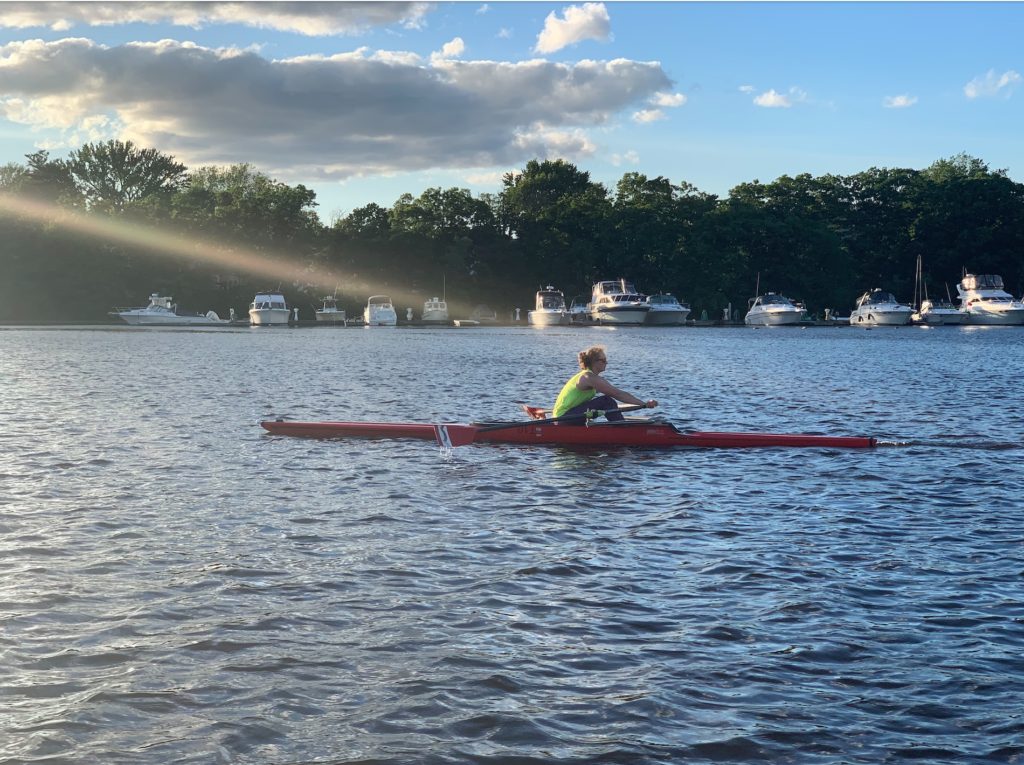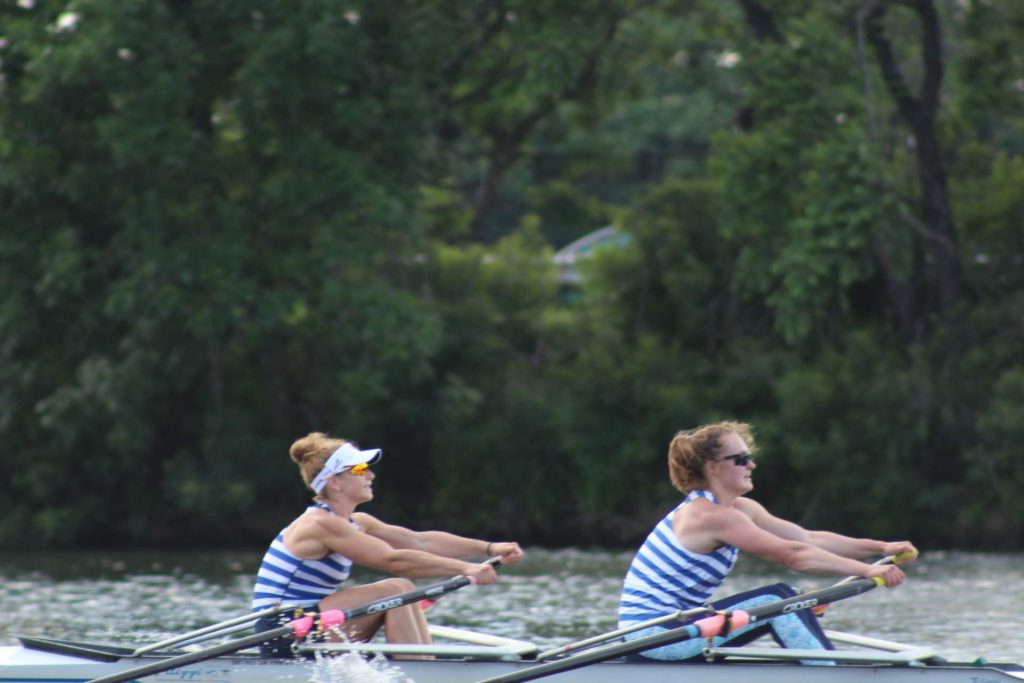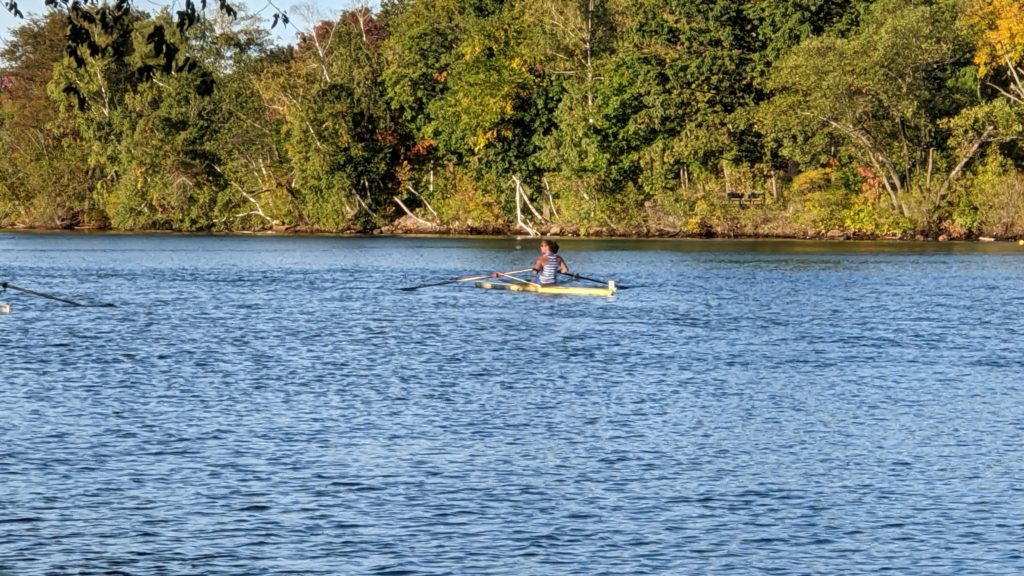About Lisa:
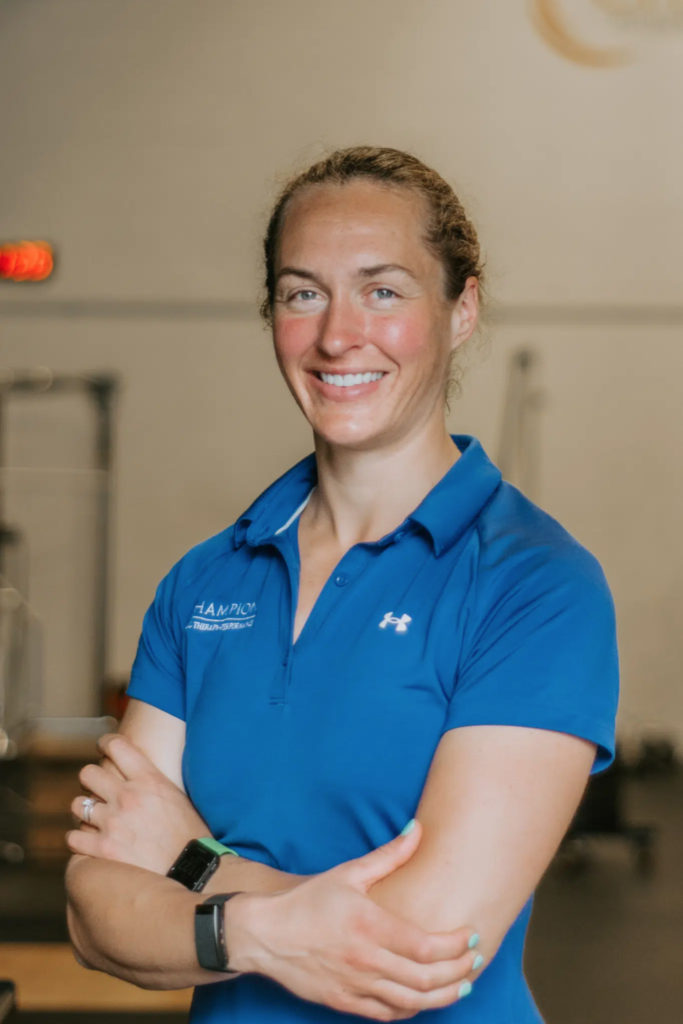
My name is Lisa Lowe, I am a doctor of physical therapy and rower in the Boston area. I love being active in every way and want to share resources and information to help other rowers be happy, healthy and to continue to be able to row as long as desired. Historically, I have been an on and off injured athlete. I have always someone who needed to complete every part of a training plan despite how my body was feeling, how much I had eaten, hydrated, slept or stressed. I was really good at ignoring what my body was telling me, even if it meant I was causing my body to breakdown. I started to learn to listen after breaking three ribs and realizing how much better I feel and preform when I take care of myself. It has taken a lot of trial and error to get to where I am now. Ever sense I started to listen to my body, to focus on recovery, on building strength in the weight room and on meeting myself where I am and not where I am “supposed to be”, I am a happier and healthier athlete. As a rower and rehab professional I want to help others find their balance and empower rowers to truly be able to focus on your goals with less derailment from injury. I want to help you build yourself into a Powerhouse athlete!
My Rowing Story:
If you’re more of an auditory person, check out the episode of Steady State Podcast where Rachel and Tara dig into my rowing history

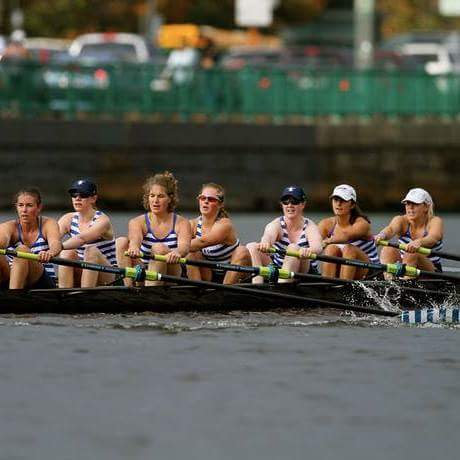
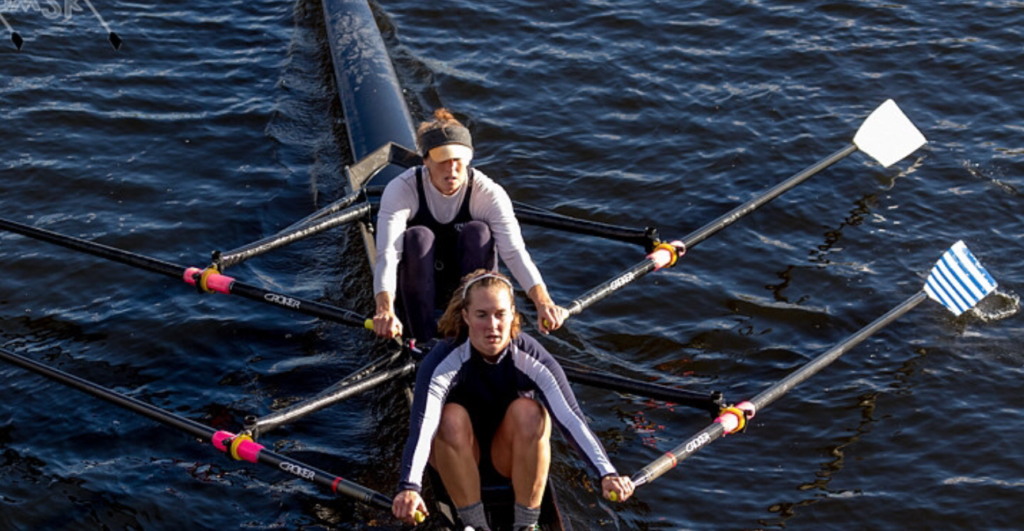
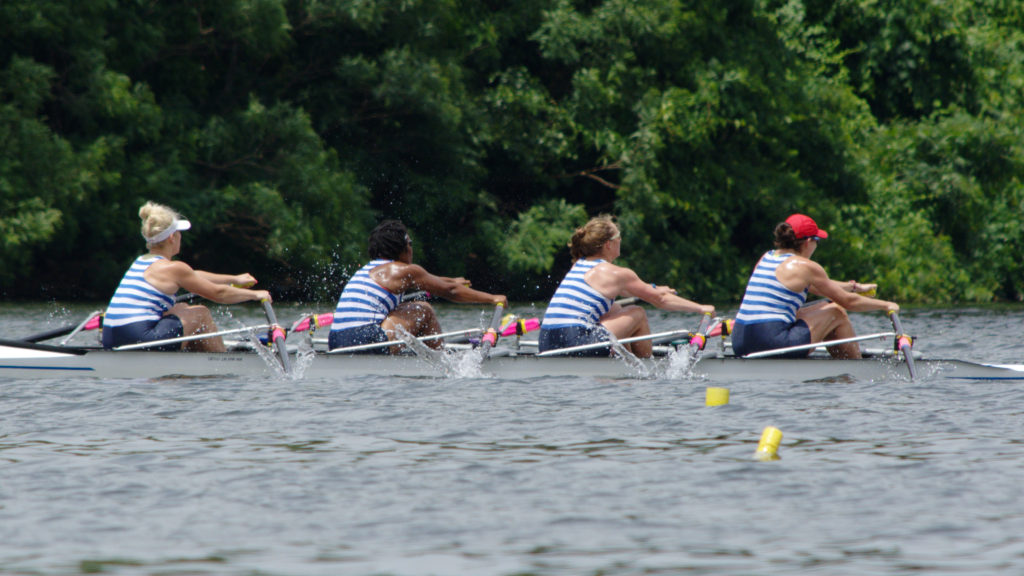
I started rowing in 2007, just after high school, my best friend and I decided to trade in our running shoes a few days a week for a learn to row program with the Blood Street Sculls, in our home town of Old Lyme, CT. I then joined the novice rowing team at Ithaca College (@iccrew, @icwomenscrew) as a freshman walk on and have been in love with the sport ever since. In general, I have always been an athlete who has to tread the fine line of training volume and injury. I’d like to say it only took one overuse injury to learn my lesson, but that would be a huge lie! Really, I became a physical therapist because of over training at points in high school for cross country and being in and out of PT a lot at that age/training level. Jump to college and I sustained stress fractures on both tibia from jumping into my freshman season of indoor track straight out of fall crew and over doing my mileage running. I had multiple rib, back, knee and shoulder issues through college again, overloaded my training capacity without proper recovery techniques or adequate strength and stability training to back up my workload and help build myself up to stay healthy. I took some time off from full time rowing to complete the graduate portion of PT school and completed a few marathons, where again I had some overtraining issues. After grad school I moved home to CT and in some ways, one of the best things that happened to me was I joined a cross fit gym with my neighbors. I was fortunate to have a background in lifting from my college coach and good technique oriented cross fit coaches. I got so strong lifting that my cardio got easier and I was getting faster when I ran or biked. I moved to Boston after passing my boards in 2013, I choose Boston to be able to train at Riverside Boat Club (@riversideboatclub) in Cambridge. My first season with RBC’s women’s sweeps was one of my most injury free for the first ¾ of the year, I had build enough strength to handle the volume. BUT with balancing working and rowing, the good habit of lifting took a back seat, and guess what, between IDR and Canadian Henley, my ribs started to act up. Too many faster pieces and a higher load demand with decreasing protective strength, yet again led to injury. Now this one didn’t put me out, I managed it with a little help from some PT friends. After a season with women’s sweeps, I moved to the High Performance Group where I was going to go after my dream of making the national team. You would think I would really have learned by now, but no, like most rowers, I got caught up in the game of the more Kilometers logged the better and didn’t prioritize lifting and maintenance work, did not play the recovery game well enough, nutritionally or sleep wise, and eventually I stress fractured 3 ribs.
NOW this finally was the turning point for me. The injury that every rower fears, RIBS. So bones heal, if you treat them well, but the true challenge was, how do I come back from this? I didn’t want to be done training, I had worked way too hard to not get to race and see what my hard work could do! How do you return without repeating the same mistakes? I knew I needed a PT who understood forces through the torso linked to loads being transferred between arms and legs, so found Champion PT and Performance (@championptp). The Physical Therapists and Strength Coaches I am now lucky enough to call mentors and colleagues helped me build my strength back and helped me get strong enough to handle my training volume. I finally found the recipe to help build a higher threshold for training workload without breaking down. After a winter of returning from the stress fractures, I rowed a successful summer racing season.
Overall, injury throughout my time training in Riverside’s HPG program, prevented me from reaching my true potential, I had a hard time being at peak and healthy enough to even pull a solid 2k test piece. I was never healthy enough to feel like I could travel to Princeton to participate in a selection regatta. Lucky for me, all that I learned is very productive professionally. I feel my purpose in going through everything, injury rehab and training wise, is to help all rowers keep themselves healthy, to decrease the overall incidence of injury in rowing so that more of us continue to row through the ranks of masters rowing. Did you know, most masters rowers actually learn later in life? Most of us who ‘learn young’ fizzle out, my guess is, this happens mostly because of re-occurring injury or just over training to the point that you start to forget why you started rowing in the first place, it’s an amazing sport! Now if I can help others continue to love rowing, to be successful with their training, to be faster and have fewer times sidelined to the bike or to pool, it would be a dream come true! I have enjoyed blending my passion as a physical therapist with rowing throughout my schooling and career. A rower is a unique athlete, mentally and physically. I love speaking both languages at once and with this blog, my goal is be part of a conversation to help cultivate a culture within rowing where we support each other without breaking each other. A culture when we realize just “more” isn’t always the answer, that each athlete is an individual we need to build up in their unique way to make a team stronger. I hope to provide strategies to help rowers of all ages, stages of development and style meet their rowing goals, to stay healthy and to enjoy some fast racing
Rowing Is My Happy Place
Like many of you, rowing just makes me feel whole. It gives a sense of purpose; it is motivating and balances me. I have been incredibly lucky to become a part of the Community Rowing Inc. (@criboston) community starting in 2019. I had a life changing car accident happen in April 2018 and everything I have learned over the years from rowing has helped me be successful in my own rehab. I am very lucky and honored to be a regular volunteer PT with the Para National Team members who train at CRI, I am even luckier to get to join in for practices. I have learned a lot from the Para National Team members both personally and professionally. I am so lucky to live in Boston where I have CRI as a resource for my own rehab and sanity, to use their resources to get myself back on the water. Knowing that I have an outlet and an opportunity to get on the river keeps me sane, helps re-connect me with the athlete I am and helps me see rowing in a whole new light. Having the door be open to continue to be a competitive athlete is huge! Now more than ever, the foundations matter, my body starts to break down if I don’t take care of it. Things start to hurt, my emotions get haywire, I really feel like a dysfunctional robot if I don’t take care of myself. It’s a hard battle to recognize what my “new body” needs compared to what I used to be able to do or put myself through. But like anything with training, rowing, learning or most things that are important in life, I have learned it takes patience, persistence, resilience and it sure helps to have a deep love of a sport like rowing to keep things moving. I wear a bracelet given to me by my mom via a high school coxswain from my home town who coxed a women’s 4+ at the 2019 HOCR, he passed an extra my way, it says “just keep rowing”. Its my life goal, symbolically and physically to just keep rowing and help others do the same!

